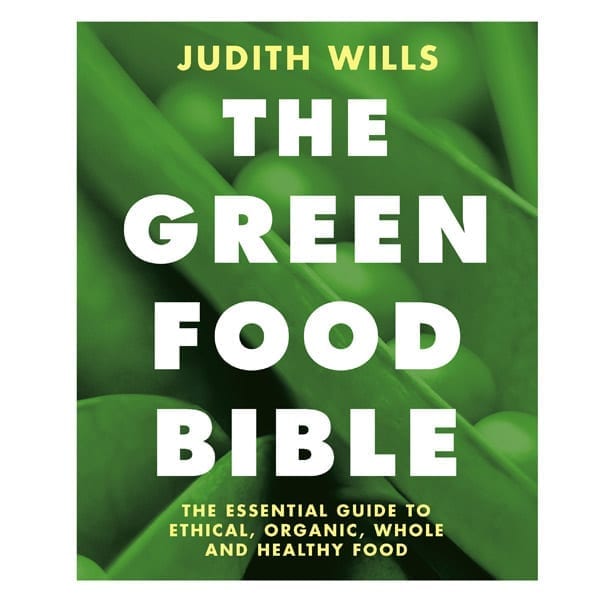Blog goddess: Judith Wills, author of The Green Food Bible
‘Ethical’ eating may cost more, but there are ways to save money by eating green. Eat well and save the planet (and feel pretty damned good inside and out).

In the last few years, more and more of us have been trying our best to ‘eat green’ – buying ethically-produced food (Fairtrade, organic, local) and thinking about animal welfare and the carbon footprint of what we eat.
But with prices of even basic foodstuffs soaring, there’s a dilemma – we’re all out hunting for food bargains, scouring the ‘reduced’ bins and swopping from Waitrose to Aldi in the hope that we can keep costs down.
Many people I’ve spoken to feel that ‘green eating’ is an expensive option, and therefore a non-starter for many of us in these ‘strapped for cash’ days. As the credit crunch tightens our green morals loosen, if you like.
Certainly, ethical eating may cost more – for example, organic foods, from meat through to pasta sauces and bread, will set you back anything from 10% to 60% more than the equivalent, non-organic product. Few of us can afford to do that. However, buying organic is by no means always the greenest option – around half of the organic food that we eat in the UK is airfreighted or shipped in from abroad. Food miles, air miles, anyone?
But the good news is that you CAN you do your bit for the planet without adding even more to your weekly shopping bills. In fact, you can even SAVE money. Here’s how.
Eat simple
Reducing the amount of ingredients, processing, etc. that your food goes through is a non-complicated way to achieve greener eating. As an example, you have a chicken breast. Eat it simply cooked – you don’t need to stuff it with mozzarella cheese and wrap it in bacon. This will in effect mean that you are eating more wholefoods and fewer highly processed items, reducing cooking costs and reducing your energy intake, which leads me on to…
Watch portions
Eat only what you need to maintain a reasonable weight. Overweight (which affects 70% of adults in the UK) is an ethical issue. Every calorie that we consume that our bodies don’t actually need is energy wasted and food wasted.
Cut down on meat and dairy
In Britain we almost all eat more protein than we need, especially animal protein which is one of the most expensive foods both to buy and to produce, in cash and in its environmental impact. Instead eat more pulses.
Think small
For good food, honestly produced in traditional ways, shop at local farmers’ markets, Country Markets (which used to be WI Markets) or visit
to find butchers, greengrocers and other food merchants who stock decent quality food ‘as good as organic’
Follow the seasons
If you have a choice between local and seasonal or imported out of season, go for the former – eg a cabbage instead of green beans in winter, a local apple in autumn instead of a kiwifruit.
Ignore the oven
Hob cooking and the microwave are the two lowest-energy forms of cooking. Try not to grill, and use the oven only when you can fill it (eg not just a small piece of fish to bake, but a lasagne, a tray of roast vegetables and a tray of cookies. And in summer, eat more raw/cold foods.
Shop efficiently
Make a list, plan menus, but make a few changes if a local/good value food is there. Forward planning helps to save wastage. Plan out your shopping journeys carefully to save a lot of money on fuel – for example, if you happen to live in the country, a visit to the nearest hypermarket could cost you pounds in petrol – check out your nearest local stores. If you have room for storage, bulk buy to reduce the number of trips you make.
Use what you buy
(Even our PM agrees with me here.) The average family spends over £600 a year on food it doesn’t eat, according to
(The Waste and Resources Action Programme).
Dig up a few rose bushes
Plant vegetables instead. You will save around 50 – 75% on shop prices, and it’s (mostly) fun!
Judith Wills’ fully illustrated guide to greener eating from farm to fork –
The Green Food Bible
is published by Eden Project Books, £15. Click
to buy this book.
Subscribe to our magazine
Food stories, skills and tested recipes, straight to your door... Enjoy 5 issues for just £5 with our special introductory offer.
Subscribe
Unleash your inner chef
Looking for inspiration? Receive the latest recipes with our newsletter